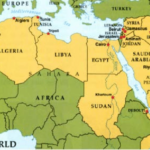Forced labour is a serious human rights violation. It can involve workers being subjected to violence, intimidation, and other forms of abuse. It can also have a devastating impact on workers’ health and well-being. Earlier in March the European Union (EU) has provisionally agreed to ban the import of products made with forced labour. The agreement is the result of years of work by the EU and its member states. It is designed to address the growing problem of forced labour in global supply chains. Overview in this article.
The EU’s agreement to ban products made with forced labour is a significant step forward in the fight against this problem. It will help protect workers from exploitation and ensure that products sold in the EU are not made with forced labour.
Scope
The agreement covers a wide range of products, including textiles, clothing, footwear, food, and electronic goods. It also covers products made from minerals that are often mined using forced labour, such as cobalt, gold, and tungsten.
The new regulation would create a framework for enforcing this ban, including through investigations, new IT solutions, and cooperation with other authorities and countries.
National investigations
Suspected use of forced labour to be investigated and, if proven, products to be withdrawn from the market. According to the agreed text, national authorities or, if third countries are involved, the EU Commission, will investigate suspected use of forced labour in companies’ supply chains. The decision to open an investigation to take into account whether the product is from an area where there is a high risk of state-imposed forced labour.
A new Forced Labour Single Portal would be set up to help enforce the new rules. It would include guidelines, information on bans, a database of risk areas and sectors, publicly available evidence, and a whistleblower portal. A Union Network Against Forced Labour Products would help improve cooperation between authorities.
The rules also foresee cooperation with third countries, for example in the context of existing dialogues or implementation of trade agreements.
Penalties but with an incentive
If the investigation concludes that forced labour has been used, the authorities can demand that relevant goods be withdrawn from the EU market and online marketplaces and confiscated at the borders. The goods would then have to be donated, recycled or destroyed. Firms that do not comply can be fined.
However, if they eliminate forced labour from their supply chains, banned products can be allowed back on the market.
Exception
Products can be allowed back on the market if forced labour is eliminated from the supply chain. Goods of strategic or critical importance for the Union may be withheld until the company eliminates forced labour from its supply chains.
Particular attention to high-risk goods and areas
The Commission will draw up a list of specific economic sectors in specific geographical areas where state-imposed forced labour exists. This will then become a criterion to assess the need to open an investigation.
The Commission can also identify products or product groups for which importers and exporters will have to submit extra details to EU customs, such as information on the manufacturer and suppliers of these products.
What’s next?
The European Parliament and Council will now both have to give their final green light to the provisional agreement. The regulation will then be published in the Official Journal and enter into force the following day. EU countries will thereafter have 3 years to start applying the new rules.
The agreement is not perfect. It does not cover all products that could be made with forced labour, and it does not include any specific measures to address the problem of forced labour in global supply chains. However, it is a step in the right direction. It sends a clear message that the EU is committed to fighting forced labour and that it will not tolerate products made with this abuse.
How to Address Forced Labour Ensuring Compliance With the Law
Ksapa offers various services to ensure its clients can apprehend such risks and engage, develop, and implement mitigation plans. These include:
- Human Rights Consulting services help financial services, consumer goods, and industrial companies to identify salient risks aligned with CSRD impact materiality requirements, regulations, and standards like UNGP and OECD’s. Ksapa develops action plans and can offer a full suite of services that implement solutions to engage workers in programs mitigating risks.
- Collaborative activities. For example, Ksapa developed a toolkit for working with big buyers and investors from the EU and the US to identify and address forced labor risks across green technology value chains (solar panels, EV battery components…).
Operating with experts and networks able to engage on these sensitive issues virtually worldwide, we stand at the ready to provide tailored solutions. Contact us!

Krystel Bassil
Krystel is senior consultant, contributing to Ksapa’s consulting and advocacy missions, on the topic of business and human rights and more generally sustainability. Krystel Bassil is also Senior Legal Officer of the Human Rights and Business Unit at the Syrian Legal Development Programme (SLDP). Prior to that Krystel worked as a business and human rights consultant advising along with leading experts on a wide range of projects across the private sector, international organizations, and academic institutions. She is admitted to the Beirut Bar and worked as a lawyer in international arbitration and human rights. Krystel holds a LL.M. degree from SOAS, School of Oriental and African Studies, University of London, a law degree in public law from the Holy Spirit University of Kaslik, Lebanon, and a degree in political science from the Saint-Joseph University of Beirut. She is fluent in French, English and Arabic.






